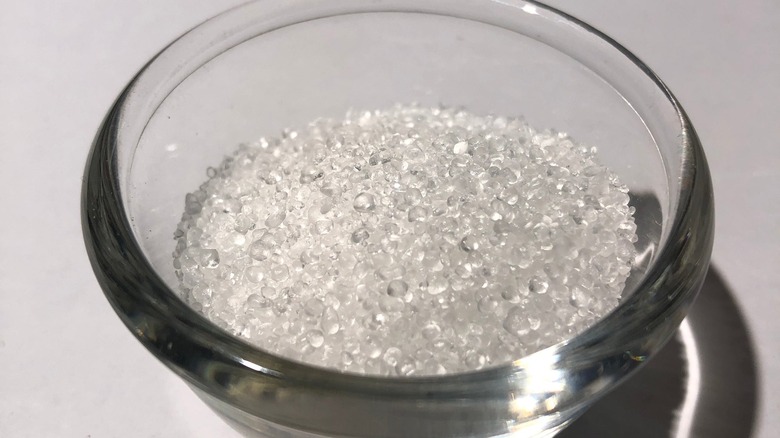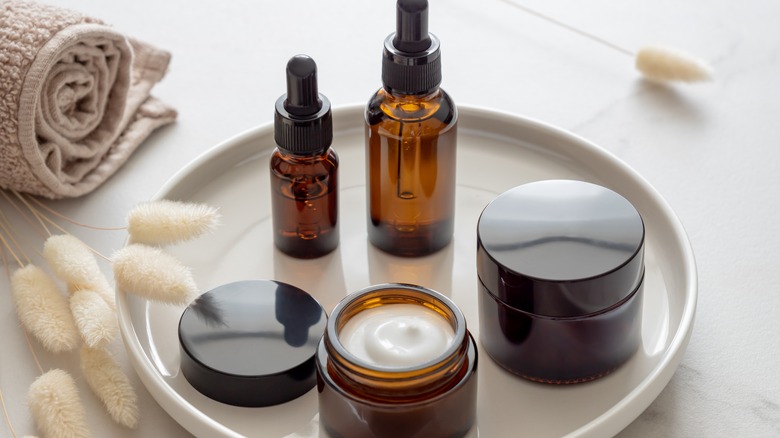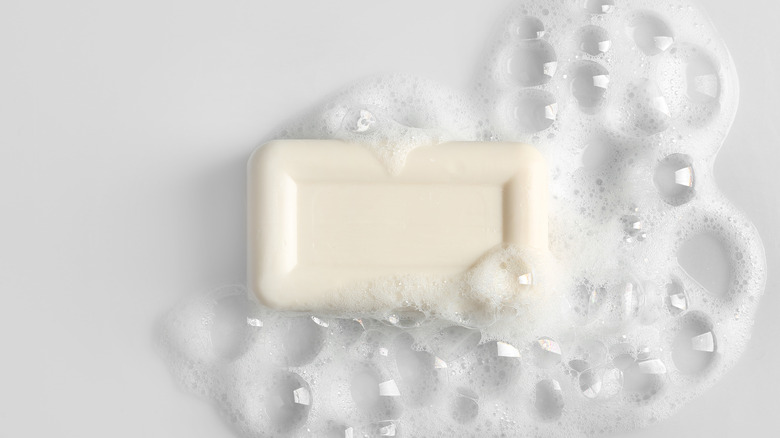What You Need To Know About BHTs In Skincare
In your quest for finding suitable makeup products for your skin, you may have come across a myriad of formulas containing dozens of strange ingredients. It's important to be mindful of what our favorite skincare goods have inside them and how they can impact our bodies. Recent studies have shown that some formerly used and common ingredients like mercury are extremely hazardous and can lead to conditions like kidney damage, so you should be wary of what goes into the products you use every day. One popular skincare ingredient that has everyone talking about and its potential side effects is BHT.
BHT stands for butylated hydroxytoluene, which is a hydrocarbon that serves as a preservative and used in many skincare products. There has been a lot of negative speculation about BHTs recently, leaving some people unsure whether they should even touch it. So, is BHT safe, or is it the enemy?
BHT is an antioxidant used to preserve cosmetic products
Oxidation is what happens when products are exposed to atmospheric oxygen and start to decompose when free oxygen radicals bind to them. Butylated hydroxytoluene, or BHT, is used in skincare products as an antioxidant to slow down this reaction and increase the shelf life of the product. Because BHT is lipophilic, meaning it is compatible with oil, and is usually found in products that contain oil such as perfume and moisturizers. With BHT, you can enjoy your product for a longer period of time without worrying about it expiring too soon. That sounds like a win for us.
Another reason why the cosmetic industry prefers to use BHT, per The Derm Review, is because it can withstand the high temperatures that come with the manufacturing process. This is a unique feature almost any other antioxidants can't boast about having, so that's two points for BHT.
BHT has been deemed safe to use by regulatory agencies
Butylated hydroxytoluene has been speculated to cause hormonal disruption as well as cancer, but just how true are these allegations? Studies have shown that BHT could potentially have something to do with hormone disruption, but only when taken orally. More tests need to be conducted to be totally sure. For now, it's still a big maybe. Still, this has very little to do with skincare because the BHT molecule isn't known to sink into the skin very well to even be absorbed. Also, the concentration level used in manufacturing these products is so low that it doesn't bear any risk at all.
Some people believe that BHT is a causative agent for cancer, but so far, this is a completely false rumor with zero scientific backing. Not only is BHT used in cosmetics, but it is also used in packaging and preserving food. The Cosmetic Ingredient Review deemed BHT safe for use as did the U.S. Food & Drug Administration (FDA), so you don't have to shrink away from products that contain it.


